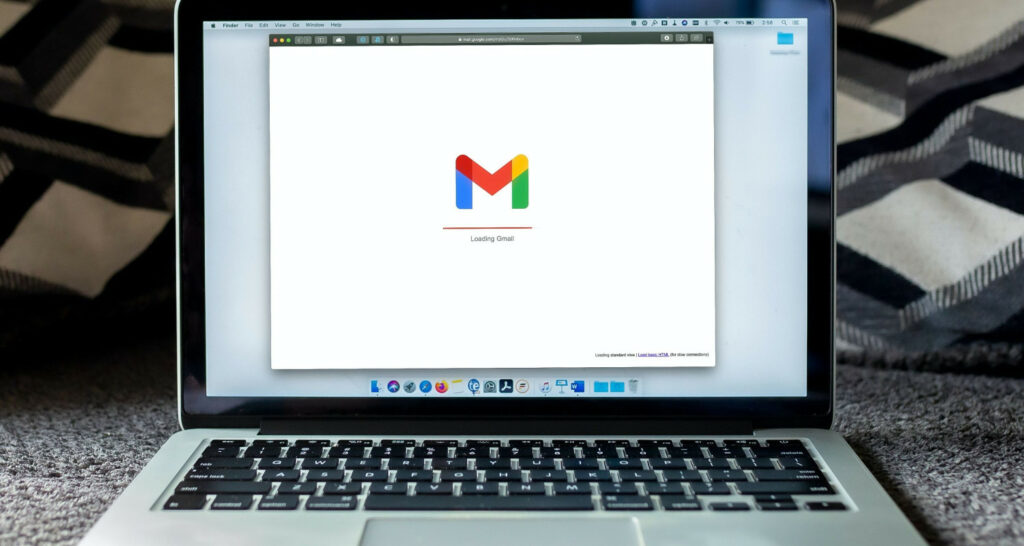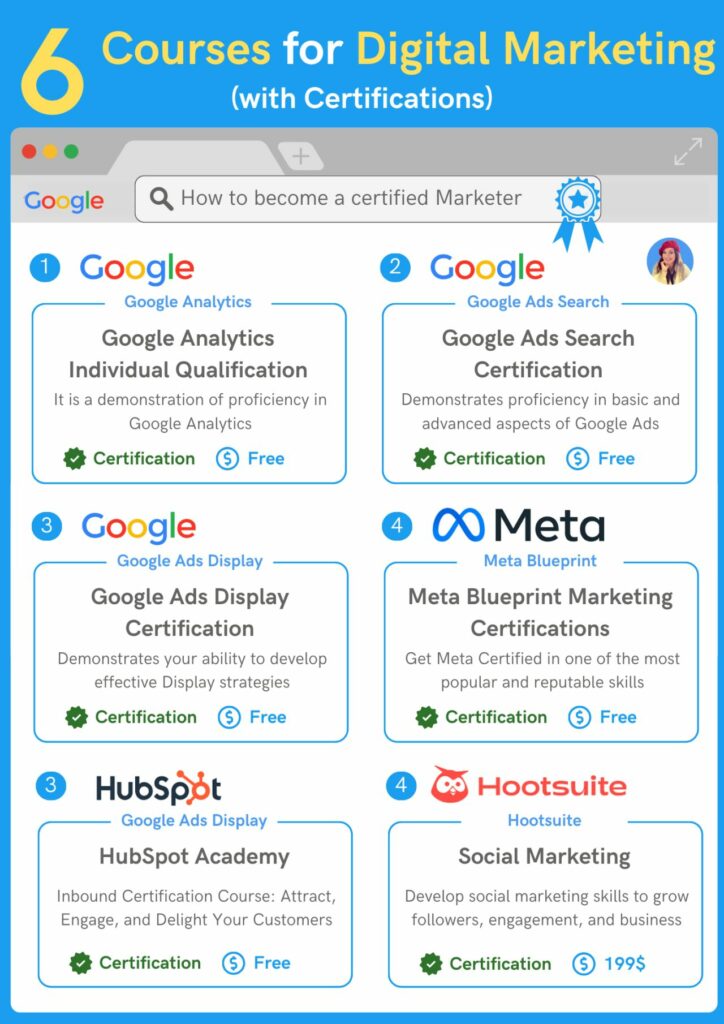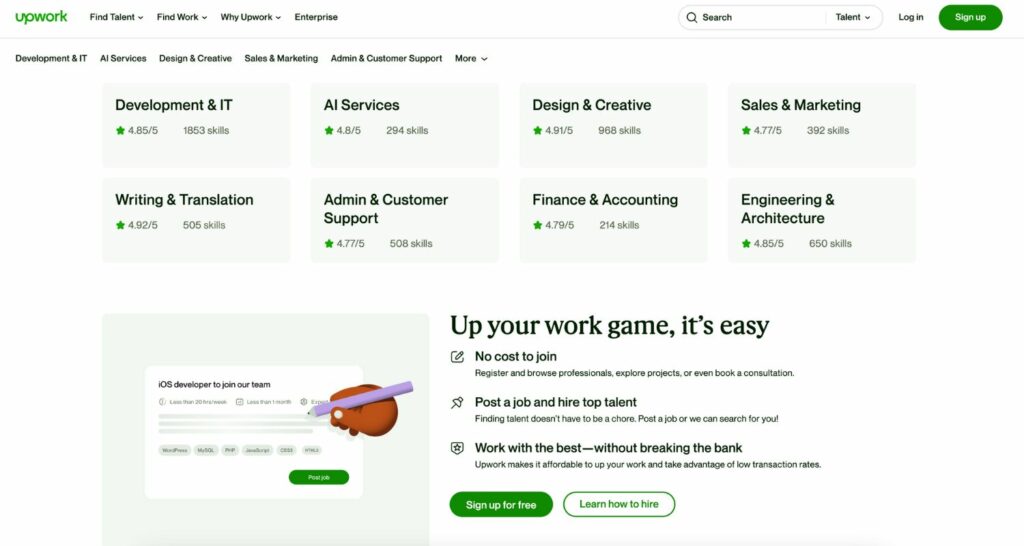Freelance digital marketing involves independently offering services like SEO, content creation, and social media management. Freelancers help businesses improve online visibility and engage with their audience, typically working remotely on a project-by-project basis. This article will teach you how to become a Freelance Digital Marketer!
To become a freelance digital marketer, start learning and exploring various fields like SEO, content marketing, and social media. Specialize in one: obtain relevant skills and certifications, register your business, create a portfolio, market your services, set pricing, and commit to continuous learning and networking.
Let’s dive deep into the whole process, step by step.
How to Become a Freelance Digital Marketer? Step-by-Step Guide
My journey started from being a blogger for fun in my school days to offering content writing services. Then, I started doing SEO and link building and gradually started an agency. Here are my two cents to help you streamline the process:
Step 1 – Explore Different Areas of Digital Marketing
Digital marketing is a vast field with many specialties that can help businesses reach their audience online.

Here are some key areas you might explore as a beginner:
- SEO (Search Engine Optimization) involves optimizing websites to rank higher in search engine results. Think of it as tweaking your website so it’s more attractive to Google, helping it show up when people search for related topics.
- Content Marketing: This area focuses on creating valuable content (like blogs, videos, and infographics) to attract and engage audiences. For example, if you run a travel blog, you might create posts about the best vacation spots that will help draw visitors to your site.
- Social Media Management: Here, you manage a brand’s presence on social media platforms like Facebook, Twitter, and Instagram. You craft posts, interact with followers, and run social media campaigns to build a community around the brand.
- Email Marketing: This involves sending emails to a list of subscribers to inform them about new products, offers, or content. It’s a way to keep in touch with your customers and encourage repeat visits to your site.
- Affiliate Marketing: In this model, you promote other people’s products and earn a commission for every sale made through your referral. For instance, if you have a blog about photography, you could link to cameras or lenses on Amazon, and if someone buys through your link, you get a cut of the sale.
Step 2 – Choose Your Specialization
If you’re not sure which field is right for you, I have mentioned which is ideal for you, the skills required, payouts, salaries, and the scope of work:
1. Content Marketing
Content marketing is ideal for those who enjoy storytelling and creating engaging content. It involves producing articles, videos, podcasts, and other media to attract and retain customers. Content marketers often collaborate with SEO specialists to enhance visibility.
The future of content marketing continues to grow as brands increasingly rely on content to connect with audiences.
Skills Required
- Content Writing
- Editing and Proofreading
- Graphic design
- Strategic content planning
- SEO basics
Payouts
Hourly rates typically range from $25 to $75. Project prices can vary widely from $500 for smaller content strategies to over $5,000 for comprehensive campaigns.
You can check out the best content writing courses and explore the opportunities.
2. SEO and SEM
Search Engine Optimization (SEO) and Search Engine Marketing (SEM) are crucial for individuals fascinated by analytics and algorithm-based marketing.
SEO focuses on optimizing website content to rank higher in search engine results, requiring skills in keyword research, analytical thinking, and technical website adjustments. SEM includes paid strategies like PPC (pay-per-click) advertising.
Skills Required
- Keyword research and analysis
- Understanding of SEO tools and analytics
- Technical website optimization
- Link Building and Off-Page SEO
- PPC campaign management

Payouts
SEO specialists can charge $50 to $150 per hour. SEM campaign projects can range from $500 to several thousand dollars, depending on scope and ad spend.
The demand for SEO/SEM specialists is high, with salaries reflecting the significant impact these roles can have on a company’s online presence. The field is dynamic, with frequent updates to search engine algorithms creating ongoing learning opportunities.
-
Social Media Management
Social media management is perfect for socially savvy, creative, and excellent communicators. This role involves crafting posts, interacting with followers, and running marketing campaigns across social platforms like Facebook, Instagram, and Twitter. Skills needed include content creation, customer service, and data analysis to measure engagement.
Lately, Social Media has transformed into Influencer marketing, focusing on short-form content. So, a large part of the work will be creating viral reels.
Skills Required
- Content creation (text, images, videos)
- Engagement and community building
- Analytics and Reporting
- Campaign management
Payouts
Typically, charges from $20 to $100 per hour. Monthly management fees range from $400 for small accounts to $2,000 or more for larger, more active accounts.
-
Email Marketing
Email marketing suits individuals who excel in direct communication and are interested in driving sales through targeted messaging. It involves sending newsletters, promotions, and automated campaigns to a list of subscribers.
Skills Required:
- Copywriting for email
- Proficiency with email marketing platforms
- A/B testing and analytics
- List management and segmentation

Payouts
Freelancers often charge between $30 to $80 per hour. Complete campaign setups range from $300 to $1,500, depending on complexity and scale.
-
Affiliate Marketing
Affiliate marketing is great for those who can persuade and are skilled at content creation and strategic link placement. This specialization involves promoting products or services in exchange for a commission on sales or leads.
Skills Required:
- Persuasive writing
- Strategic placement of affiliate links
- Performance analysis and reporting
- Understanding of compliance and legal issues
Payouts
Earnings are typically commission-based, with successful marketers earning from a few hundred to several thousand dollars per month, depending on the volume and conversion of traffic.
-
PPC and Paid Media
PPC (Pay-Per-Click) and paid media are for those interested in advertising and data-driven results. This specialization focuses on managing ad campaigns on platforms like Google Ads and Facebook. Skills required include understanding ad platforms, budget management, and analytical skills to optimize ad spend and performance.
Skills Required
- Mastery of digital advertising platforms (Google Ads, Facebook Ads)
- Budget management
- Data analysis for optimization
- Creative testing and campaign adjustment
Payouts
Rates for PPC experts range from $50 to $200 per hour. Complete campaign management can command prices from $1,000 to over $5,000 monthly, depending on the campaign size and complexity.
Step 3 – Gain the Necessary Skills and Certifications
Continuous education and certification are crucial to education, and certification is vital to excelling as a freelance digital marketer. Digital marketing evolves rapidly, with new tools and techniques constantly emerging. The right skills and official certifications can significantly enhance your credibility and effectiveness.
Recommended Courses and Certifications
- Google Digital Garage: Google offers a variety of free courses that cover fundamentals and advanced strategies in digital marketing, including the widely recognized Google Analytics certification.
- HubSpot Academy: Known for its comprehensive inbound marketing training, HubSpot offers certifications in content marketing, email marketing, and social media strategy, among others.
- Facebook Blueprint Certification: This program provides in-depth knowledge of Facebook advertising and is essential for social media marketers who want to leverage Facebook’s extensive network.
- SEMrush Academy: Offers free courses and exams to get certified in SEO, content marketing, PPC, and social media marketing.
- Digital Marketing Institute: This institute provides a more formal education in digital marketing, with diplomas and degrees covering a broad spectrum of marketing disciplines.

In my articles, such as “Top Digital Marketing Certifications for a Career Boost” and “How to Become a Freelance Content Writer,” I have detailed these courses and certifications, emphasizing their relevance to current industry needs and how they can help build a versatile and robust marketing skillset.

These resources are invaluable for anyone serious about a freelance career in digital marketing, providing both foundational knowledge and specialized training.
Step 4 – Build and Showcase Your Portfolio
Creating a compelling portfolio is essential for any freelance digital marketer. It showcases your skills and experiences and provides tangible proof of your abilities to potential clients. Start by selecting projects highlighting diverse aspects of digital marketing, such as successful SEO campaigns, engaging content pieces, well-managed social media profiles, and effective email marketing campaigns.
Include detailed case studies in your portfolio to demonstrate the impact of your work. For each project, provide context about the challenge, your approach, the tools used, and the results achieved. This approach helps potential clients understand how you solve problems and the value you can bring to their projects.

To become a freelance digital marketer, it’s essential to create a professional website showcasing your portfolio. Ensure the design is clean and navigation is intuitive, prioritizing user experience. Regularly update your portfolio with your latest work to keep it fresh and relevant. This ongoing effort will help attract new clients and open doors to more advanced opportunities in the digital marketing field.
Step 5 – Market Your Services
Effectively marketing your services is crucial to attracting and retaining clients as a freelance digital marketer. Here are strategic approaches to consider:
1. Networking
Networking remains one of the most effective ways to connect with potential clients and industry peers. Attend industry conferences, seminars, and meetups to interact with other professionals.
Virtual webinars and forums can also provide networking opportunities, allowing you to connect with a global audience to become a freelance digital marketer. Don’t underestimate the power of word-of-mouth; let your friends, family, and acquaintances know about your services.
2. Social Media and Online Marketing
Use social media platforms to establish your authority in digital marketing. Share insightful content, engage with followers through comments and discussions, and showcase successful case studies. Platforms like LinkedIn, Twitter, and Instagram are excellent for reaching business clients, while a well-maintained blog can help demonstrate your expertise and improve your website’s SEO.

3. Joining Professional Associations
Becoming a member of professional associations can lend credibility and visibility to your services. Associations often offer resources such as training, certifications, and the latest industry news, as well as networking and professional development opportunities.
4. Focus on Personal Branding
Personal branding is vital in setting yourself apart from the competition. Define your unique value proposition—what makes you different and better suited to meet your client’s needs than others? Develop a consistent message and visual identity across all your marketing materials and online platforms.
Personal branding is not just about selling your services; it’s about conveying your professional identity and building trust with potential clients.
Step 6 – Establish Pricing and Payment Structures
Setting clear and competitive pricing and payment structures is crucial for your sustainability and success as a freelance digital marketer.
Start by researching the current market rates for similar digital marketing services. Consider factors like your experience level, the project’s complexity, and the client’s budget.
You can choose between various pricing models depending on the nature of the project:
- Hourly Rate: Charge by the hour for more flexible or ongoing projects. This is ideal when the scope of the project is not clearly defined.
- Project-Based Fee: Set a fixed price for entire projects. This works well for tasks with a well-defined scope and deliverables.
- Retainer Fee: Consider a monthly retainer fee for ongoing services, which guarantees you a fixed income and provides the client with continuous support.

Additionally, clearly outline payment terms, such as advance deposits or milestone payments, to ensure smooth financial operations. Using free invoicing sites like https://invoice-generator.com/ to manage and track payments efficiently is also wise.
Step 7 – Set Up Your Business Framework
A solid business framework is crucial for your success and legality in becoming a freelance digital marketer. Understanding and implementing the appropriate business structure and legal considerations ensures your operations run smoothly and legally.
Legal Considerations
Legal requirements for freelancers vary significantly from country to country. Initially, you may offer services through freelancer platforms like Upwork, Freelancer, or Fiverr, which handle many contractual and payment processing elements.
As you grow, consider the legal implications of freelancing, such as tax obligations, contracts, and intellectual property rights. It’s wise to consult with a legal advisor to understand the specific regulations in your country.

Eventually, as your business expands, transitioning from a sole proprietorship to a registered company might be beneficial to mitigate personal risk and increase professional credibility.
Business Registration
Registering your business is a crucial step as you move beyond casual freelancing. The process includes selecting a business structure (e.g., sole proprietorship, limited liability company) and registering with the relevant local authorities.
This registration often involves obtaining a tax identification number, registering for state and local taxes, and possibly acquiring business licenses and permits.
While the process can vary widely based on your location, the benefits of registration include legal protection, tax benefits, and enhanced business credibility. Ensure you adhere to the local laws and regulations to avoid future legal complications in becoming a freelance digital marketer
Step 8 – Continuous Learning and Skill Upgrading
Here are several strategies to keep your skills sharp:
Attending Conferences and Workshops: These events are invaluable for networking, but they also serve as a platform to learn about the latest trends, tools, and strategies in digital marketing. They often feature expert speakers and provide hands-on experience with new technologies.

Advanced Certifications: Advanced certifications from recognized bodies or platforms can deepen your expertise in specific areas, such as Google Ads, Facebook Blueprint, or specialized SEO tools. These certifications enhance your skills and add to your credibility as a digital marketing expert.
Experimenting with the Latest Tools and Trends: Regularly experimenting with new tools and adapting to the latest digital marketing trends can give you a competitive edge. Whether it’s new social media platforms, AI-driven analytics tools, or emerging content strategies, staying ahead of the curve allows you to offer innovative solutions to your clients.
Recommended Reading and Blogs: Regularly following industry-leading blogs and books can provide ongoing insights and inform you about best practices and new methodologies in digital marketing.
Online Courses and Webinars: Engaging in online education through courses and webinars allows you to enhance your skills and knowledge from experts worldwide flexibly.
Mentorship and Coaching Opportunities: Seeking out mentorship or coaching from experienced professionals in digital marketing can provide personalized guidance and accelerate your growth and understanding of complex topics.
Pros and Cons of Freelance Digital Marketing
| Pros | Cons |
|---|---|
| Flexibility in work hours and location | Irregular income and work stability |
| Opportunity to work on a variety of projects | Need for self-marketing and client acquisition |
| Control over job choices and client selection | Responsibility for all business aspects, like finances |
| Potential for higher earnings based on workload | Lack of employer-provided benefits |
| Direct impact on your growth and professional progress | Constant need for self-motivation and discipline |
FAQs
How much do freelance digital marketers make?
Freelance digital marketers can earn between $20 to $100 per hour, depending on their skills and the project's complexity. Annual earnings vary widely, with successful freelancers making $50,000 to $100,000 or more based on their client base and project rates.
Is freelance digital marketing a good career?
Freelance digital marketing is an excellent career for those who value flexibility and variety. It offers high potential earnings and the opportunity to work on diverse projects across industries. However, it requires adaptability, continuous learning, and self-motivation.
How to start freelancing with no experience in digital marketing?
Begin by learning digital marketing fundamentals through online courses and certifications. Volunteer or take on small projects to build your portfolio. Network with other professionals and utilize social media platforms to showcase your growing skills and connect with potential clients.
What is best, freelancing or digital marketing?
The choice between freelancing and digital marketing depends on your career goals and lifestyle preferences. Freelancing offers flexibility and control, while a career in a digital marketing agency provides stability and team collaboration. Both paths can be rewarding and successful.
Summing up
Becoming a freelance digital marketer offers a unique blend of flexibility and control over your career, with the potential for diverse work and high earnings. However, it requires continuous learning, self-discipline, and proactive business management.
By understanding the landscape, honing your skills, and strategically marketing your services, you can successfully navigate the challenges and reap the rewards of this dynamic field.
